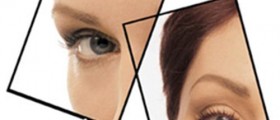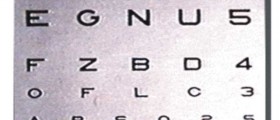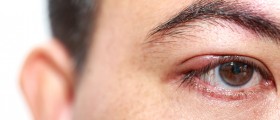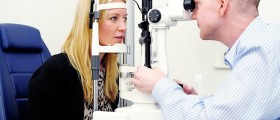
Doctor’s term for double vision is diplopia. This symptom should not be taken lightly because it might need some emergency care. A person may suffer from double vision without any additional symptoms or have some other problems as well. Misalignment of one or both eyes, known as wandering eye or appearing as cross-eyed can be additional symptom accompanying double vision. Many times, people feel nauseous or have headaches along with vision problems. Weakness of the eyes or some other part of the body, as well as droopy eyelids may also be symptoms presented with double vision in the eye(s). Some patients may complain about the pain during eye movements in one or both eyes, while others could experience different pains around the eyes, in the eyebrows or in the temples.
What Can Cause Diplopia?
If any part of the vision system fails to work properly, people may experience vision problems, including some double vision. Cornea problems usually affect vision on one eye and they are caused by different infections or by complications after LASIK surgery. Cataract is a problem associated with the lens and it can affect one or both eyes, distorting the vision. This problem can be resolved through surgical methods.
Weakness of the muscles in the eye due to myasthenia gravis and Graves’ disease are also possible explanations for diplopia. Myasthenia gravis is easily identified with drooping eyelids (ptosis), while Graves’ disease is very commonly seen to cause vertical diplopia.
Nerve damage in the eye in people suffering from poorly managed or uncontrolled diabetes, multiple sclerosis (MS) or Guillain-Barre syndrome may also cause double vision. Furthermore, brain problems such as migraines, stroke, aneurism or increased pressure in the brain after some infections, injuries or traumas may also be causes of double vision.
Diplopia Treatment Options
Proper diagnosis is the most important issue prerequisite for accurate and successful treatment of double vision. Correction or adequate management of diplopia cause usually leads to significant improvement or cure of vision problems.
Surgical procedures are recommended as the solution for patients experiencing double vision caused by weak eye muscles or eye injuries. Medical therapy is the choice for patients suffering from myasthenia gravis or Graves’ disease. The later can also be treated surgically. Diabetic vision problems are usually resolved after proper management of blood sugar.
For some people, double vision could be a problem for a lifetime, without any chance to be cured. In these cases, these people may wear special contact lenses or eye patches in order to minimize unpleasant effects of double vision.

















Your thoughts on this
Loading...